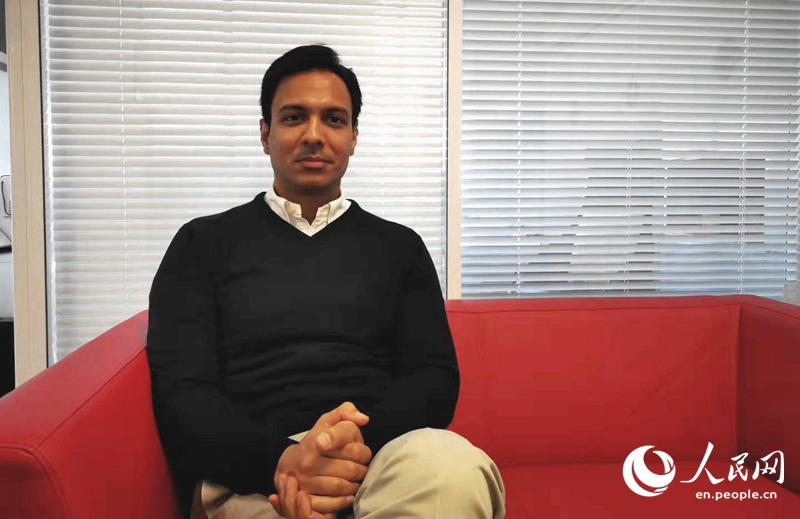
Mustafa Hyder Sayed, Executive Director of the Pakistan-China Institute (People's Daily Online/Liu Ning)
The so-called "Uyghur Human Rights Policy Act of 2019" passed by the U.S. House of Representatives on Dec. 3, which distorts the human rights situation in China's Xinjiang, has been condemned by an expert from Pakistan.
“We see the bill as blatant interference into the internal affairs of the People's Republic of China,” said Mustafa Hyder Sayed, Executive Director of the Pakistan-China Institute, further noting that the most important human right is the right to a better life in which citizens have a better income and living standard.
"China has lifted over 800 million people out of poverty. It gives a better living standard to its people. It has given safety and security to its people. So that human right has been fulfilled by China," he said.
"No country should be lecturing China on human rights. I think China has been a pioneer in human rights," he added.
In the early years, Xinjiang suffered from extremism, violence and terrorism. According to Xinhua, from the 1990s to 2016, there had been thousands of cases of terrorism in Xinjiang and surrounding areas, causing a large number of innocent casualties and seriously endangering China's security, as well as the lives and property of people of all ethnic groups.
“Pakistan has been a victim of terrorism in the past, and we still are. We have a suffered a lot of civilian casualties, a lot of military casualties, so we understand the plight of China,” Sayed noted.
In response, the Chinese government cracked down on violent activities to promote economic development, ethnic unity, and social stability by setting up education and training centers to provide education and training in the common language, legal knowledge, and vocational skills to people affected by religious extremism as well as those who commit minor crimes.
Facts prove that Xinjiang has made remarkable achievements in fighting terrorism and eliminating extremism. Today, Xinjiang's society remains stable and its economy has achieved high-quality development. According to Xinhua, the region’s GDP stood at 1.22 trillion yuan in 2018, an increase of 6.1 percent over the previous year. What's more, the number of tourists to Xinjiang has surged. From January to October this year, the number of domestic and foreign tourists to Xinjiang exceeded 200 million. So far, China has invited more than 70 delegations and thousands of people, including foreign envoys, officials of international organizations and members of the media, to visit Xinjiang. They praised peace, stability and development in the region.
Sayed said, “In order to achieve peaceful stability, we support that the measures which China has taken to counter terrorism, which is a common threat not only for China, but for Pakistan, and for the central Asian countries which border China.”
Mustafa has been travelling to Urumqi, capital of northwest China's Xinjiang Uygur Autonomous Region, for a couple of years. He explained that when he last visited four months ago, he could see a drastic improvement. "In the past three years, there have been no terrorist incidents in Xinjiang, thanks to the successful counterterrorism efforts of the government of China," he noted.
He further noted that China has historically followed a policy of non-interference, and we appreciate the policy of non-interference and of not meddling in other countries' affairs.
